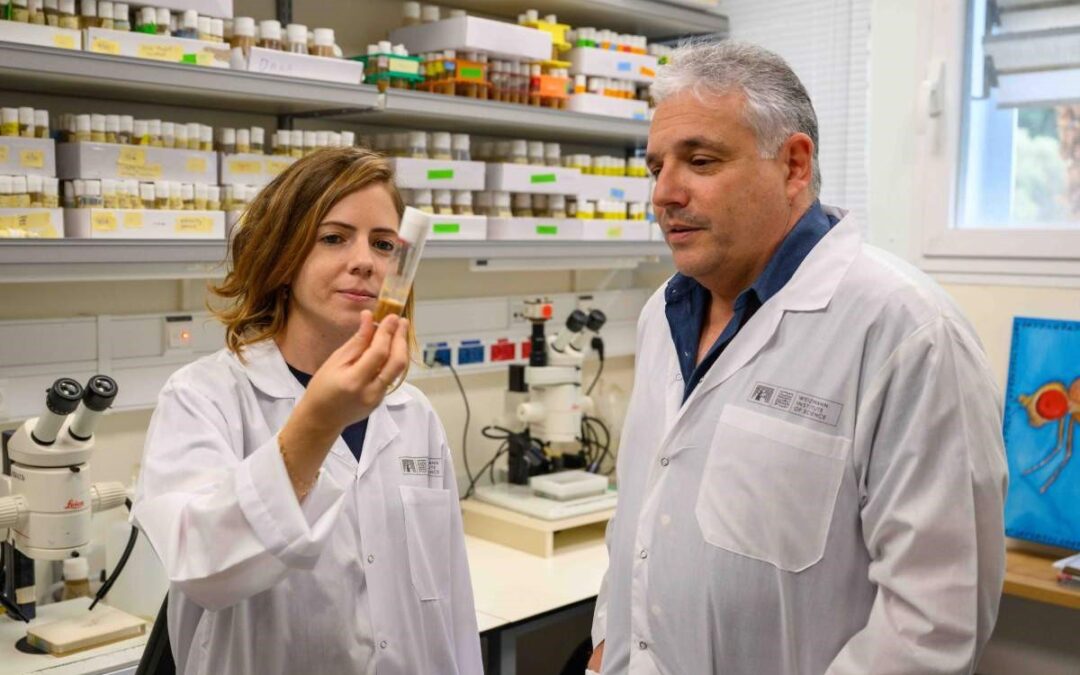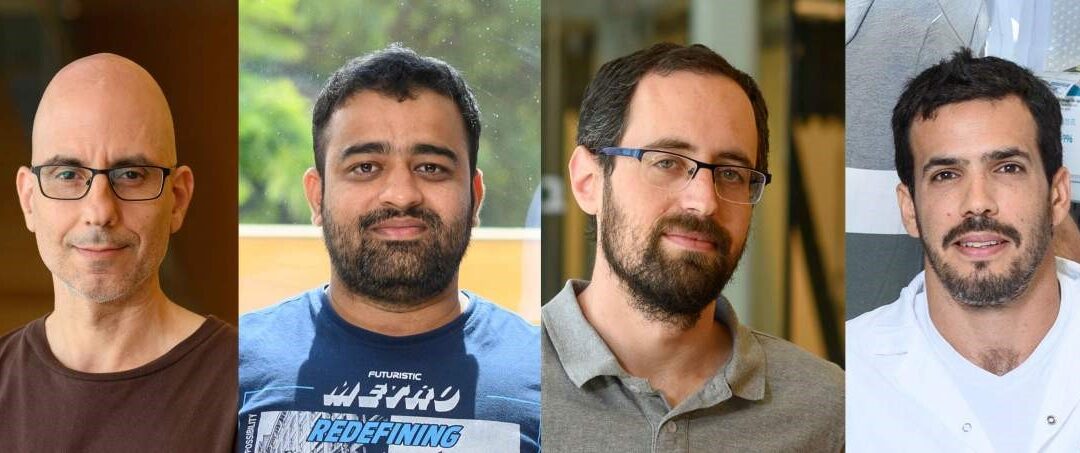The Weizmann Institute of Science has announced the inauguration of the Michael Sela Prize in Biomedical Sciences, a new international award established to honour the legacy of Professor Michael Sela (1924–2022), trailblazing immunologist and sixth president of the Weizmann Institute. The prize acknowledges pioneers and leaders in biomedical research for their ground-breaking discoveries and contributions to science and humanity.
In its inaugural year, the 2025 Michael Sela Prize was presented to Professor Francis S. Collins, Professor Leroy (Lee) Hood and Professor Eric S. Lander. Their pioneering work has reshaped our understanding of life and disease and transformed modern medicine, forging a new path for human health.
“We hope that this prize will promote engagement in biomedical sciences by future generations and serve as an inspiration to others,” said Weizmann Institute President Professor Alon Chen.
“It is open to researchers worldwide, underscoring the Weizmann Institute’s commitment to scientific excellence without borders and to fostering a global community of inquiry, discovery and progress.”
Awarded annually, the Michael Sela Prize reflects Professor Sela’s vision of science in service of human well-being and his deep commitment to basic research with real-world significance. Each year it will celebrate up to three outstanding scientists whose discoveries are both transformative in impact and innovative in approach. Totalling $360,000 shared among the selected laureates, the prize is funded by Dr Avraham and Michal Kadar through the Kadar Foundation.
The 2025 Michael Sela Prize recipients
The three laureates have made seminal contributions to the field of genomics, including the Human Genome Project.
Professor Francis S. Collins is a physician-geneticist whose scientific leadership has profoundly shaped genetics, genomics and public health policy over the past four decades. He led the international Human Genome Project to its historic completion in 2003 and served as Director of the U.S. National Institutes of Health (NIH) from 2009 to 2021, spearheading major initiatives in precision medicine, neuroscience and responses to public health crises, including COVID-19. His research uncovered key genes responsible for cystic fibrosis, neurofibromatosis, Huntington’s disease, type 2 diabetes and other conditions.
A committed advocate for dialogue between science and faith, Professor Collins is also a bestselling author, most recently of The Road to Wisdom: On Truth, Science, Faith, and Trust (2024). He received a PhD in physical chemistry from Yale (1974) and an MD from the University of North Carolina (1977). His numerous honours include the Presidential Medal of Freedom (2007), the National Medal of Science (2009) and the Templeton Prize (2020), which acknowledged his efforts to bridge science and spirituality.
Professor Leroy (Lee) Hood is a pioneering biologist and biotech innovator whose work has transformed biomedical research. He co-founded the Institute for Systems Biology (ISB) in 2000, serving as its president until 2017, and currently, as its chief strategy officer and professor. He also heads Phenome Health, a non-profit advancing personalized, preventive medicine. Professor Hood played a leading role in developing automated DNA sequencers and synthesizers – technologies that enabled the Human Genome Project – and contributed foundational insights into antibody diversity.
Professor Hood earned his MD from Johns Hopkins University (1964) and a PhD in biochemistry from Caltech (1968), where he later served as Chair of Biology. In 1992, he founded the first academic department to integrate biology, engineering and computation at the University of Washington. One of only 20 scientists elected to all three U.S. National Academies – Science, Engineering and Medicine – he has co-founded more than a dozen biotech companies, including Amgen, Applied Biosystems and Arivale. His many accolades include the Lasker Award (1987), Kyoto Prize (2002) and the National Medal of Science (2011).
Professor Eric S. Lander is a geneticist, molecular biologist and mathematician widely renowned for his landmark contributions to genomics and biomedical science. He was a principal leader of the international Human Genome Project and founded the Whitehead Institute/MIT Center for Genome Research. The centre later evolved into the Broad Institute of MIT and Harvard, which Professor Lander directed until 2021, when he became Science Advisor to President Biden. In 2022, he launched Science for America, a solutions incubator focused on addressing urgent challenges including the climate and energy crisis, medicine and public health, and STEM equity and education.
Professor Lander, who holds a PhD in mathematics from Oxford University (1980), has pioneered methods for mapping the genetic basis of complex diseases such as heart disease, diabetes, schizophrenia and cancer. His research has also deepened understanding of human population genetics and the 3D structure of the genome. He is the recipient of a MacArthur Fellowship (1987), the Gairdner Award (2002), the Breakthrough Prize in Life Sciences (2013), the Dan David Prize (2015) and numerous other honours.
Michael Sela: pioneering immunologist and scientific statesman
Professor Michael Sela was a towering figure in Israeli and global science. A pioneer in immunology and drug development, his research laid the groundwork for modern understanding of the immune response and contributed to the development of therapies such as two blockbuster drugs, the multiple sclerosis drug Copa one and Erbitux for the treatment of cancer. He considered his fundamental research on the genetic control of the immune system among his most meaningful scientific legacies.
Sela joined the Weizmann Institute in 1950 and served in several leadership roles, culminating in his presidency from 1975 to 1985. A recipient of numerous honours, including the Israel Prize (1959) and the Wolf Prize in Medicine (1998), he was a passionate advocate of curiosity-driven research, a founder of the Chemical Immunology Department and the driving force behind several landmark initiatives in biomedicine and interdisciplinary science. His dedication to excellence extended beyond science, encompassing the arts and public service. The Michael Sela Prize in Biomedical Sciences stands as a tribute to his visionary spirit and lifelong dedication to improving human health through science.














